Related Research Articles

A part of Eastern Africa, the territory of what is known as Kenya has seen human habitation since the beginning of the Lower Paleolithic. The Bantu expansion from a West African centre of dispersal reached the area by the 1st millennium AD. With the borders of the modern state at the crossroads of the Bantu, Nilo-Saharan and Afro-Asiatic ethno-linguistic areas of Africa, Kenya is a multi-ethnic state. The Wanga Kingdom was formally established in the late 17th century. The Kingdom covered from the Jinja in Uganda to Naivasha in the East of Kenya. This is the first time the Wanga people and Luhya tribe were united and led by a centralized leader, a king, known as the Nabongo.

The Kenya African National Union (KANU) is a Kenyan political party that ruled for nearly 40 years after Kenya's independence from British colonial rule in 1963 until its electoral loss in 2002. It was known as Kenya African Union (KAU) from 1944 but due to pressure from the colonial government, KAU changed its name to Kenya African Study Union (KASU) mainly because all political parties were banned in 1939 following the start of the Second World War. In 1946 KASU rebranded itself into KAU following the resignation of Harry Thuku as president due to internal differences between the moderates who wanted peaceful negotiations and the militants who wanted to use force, the latter forming the Aanake a forty, which later became the Mau Mau. His post was then occupied by James Gichuru, who stepped down for Jomo Kenyatta in 1947 as president of KAU. The KAU was banned by the colonial government from 1952 to 1960. It was re-established by James Gichuru in 1960 and renamed KANU on 14 May 1960 after a merger with Tom Mboya's Kenya Independence Movement.

The Mau Mau rebellion (1952–1960), also known as the Mau Mau uprising, Mau Mau revolt, or Kenya Emergency, was a war in the British Kenya Colony (1920–1963) between the Kenya Land and Freedom Army (KLFA), also known as the Mau Mau, and the British authorities. Dominated by Kikuyu, Meru and Embu fighters, the KLFA also comprised units of Kamba and Maasai who fought against the European colonists in Kenya - the British Army, and the local Kenya Regiment.

Jomo Kenyatta was a Kenyan anti-colonial activist and politician who governed Kenya as its Prime Minister from 1963 to 1964 and then as its first President from 1964 to his death in 1978. He played a significant role in the transformation of Kenya from a colony of the British Empire into an independent republic. Ideologically an African nationalist and a conservative, he led the Kenya African National Union (KANU) party from 1961 until his death.

The Kenya African Democratic Union (KADU) was a political party in Kenya. It was founded in 1960 when several leading politicians refused to join Jomo Kenyatta's Kenya African National Union (KANU). It was led by Ronald Ngala who was joined by Moi's Kalenjin Political Alliance, the Masai United Front, the Kenya African Peoples Party, the Coast African Political Union, Masinde Muliro's Baluhya Political Union and the Somali National Front. The separate tribal organisations were to retain their identity and so, from the very start, KADU based its political approach on tribalism. KADU's aim was to defend the interests of the so-called KAMATUSA as well as the British settlers, against the imagined future dominance of the larger Luo and Kikuyu that comprised the majority of KANU's membership, when it became inevitable that Kenya will achieve its independence. The KADU objective was to work towards a multiracial self government within the existing colonial political system. After release of Jomo Kenyatta, KADU was becoming increasingly popular with European settlers and, on the whole, repudiated Kenyatta's leadership. KADU's plan at Lancaster meetings was devised by European supporters, essentially to protect prevailing British settlers land rights.

The flag of Kenya is a tricolour of black, red, and green with two white edges imposed with a red, white and black Maasai shield and two crossed spears. The flag is mainly based on that of Kenya African National Union and was officially adopted on 12 December 1963 after Kenya's independence.

The Kenya African Union (KAU) was a political organization in colonial Kenya, formed in October 1944 prior to the appointment of the first African to sit in the Legislative Council. In 1960 it became the current Kenya African National Union (KANU).

Thomas Joseph Odhiambo Mboya was a Kenyan trade unionist, educator, Pan-Africanist, author, independence activist, and statesman. He was one of the founding fathers of the Republic of Kenya. He led the negotiations for independence at the Lancaster House Conferences and was instrumental in the formation of Kenya's independence party – the Kenya African National Union (KANU) – where he served as its first Secretary-General. He laid the foundation for Kenya's capitalist and mixed economy policies at the height of the Cold War and set up several of the country's key labour institutions. Mboya was Minister for Economic Planning and Development when he was assassinated.
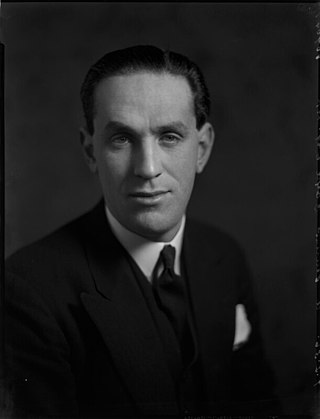
Alan Tindal Lennox-Boyd, 1st Viscount Boyd of Merton, CH, PC, DL, was a British Conservative politician.
Athletics Kenya (AK) is the governing body for the sport of athletics in Kenya. It is a member of World Athletics and Confederation of African Athletics. AK organises athletics competitions held in Kenya. It also sends Kenyan teams to international championships. Jackson Tuwei is the current chairman of Athletics Kenya. AK is headquartered in Riadha House, next to Nyayo National Stadium, Nairobi.
John William Arthur was a medical missionary and Church of Scotland minister who served in British East Africa (Kenya) from 1907 to 1937. He was known simply as Doctor Arthur to generations of Africans.

Bildad Mwaganu Kaggia was a Kenyan nationalist, activist, and politician. Kaggia was a member of the Mau Mau Central Committee. After independence he became a Member of Parliament. He established himself as a militant, fiery nationalist who wanted to serve the poor and landless people. Because of this he fell out irreconcilably with Jomo Kenyatta.

Indians in Kenya, often known as Kenyan Asians, are citizens and residents of Kenya with ancestral roots in the Indian subcontinent. Significant Indian migration to modern-day Kenya began following the creation of the British East Africa Protectorate in 1895, which had strong infrastructure links with Bombay in British India. Indians in Kenya predominantly live in the major urban areas of Nairobi and Mombasa, with a minority living in rural areas.

The Colony and Protectorate of Kenya, commonly known as British Kenya or British East Africa, was part of the British Empire in Africa from 1920 until 1963. It was established when the former East Africa Protectorate was transformed into a British Crown colony in 1920. Technically, the "Colony of Kenya" referred to the interior lands, while a 16 km (10 mi) coastal strip, nominally on lease from the Sultan of Zanzibar, was the "Protectorate of Kenya", but the two were controlled as a single administrative unit. The colony came to an end in 1963 when a native Kenyan majority government was elected for the first time and eventually declared independence.
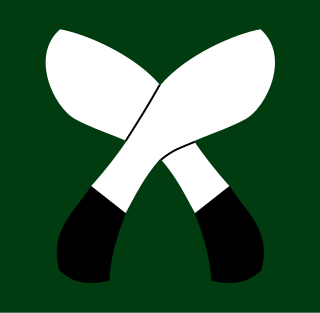
East Africa Command was a Command of the British Army. Until 1947 it was under the direct control of the Army Council and thereafter it became the responsibility of Middle East Command. It was disbanded on 11 December 1963, the day before Kenya became independent, and replaced by British Land Forces Kenya, tasked with withdrawing all remaining British troops. All remaining troops left by December 1964 and British Land Forces Kenya was disestablished.
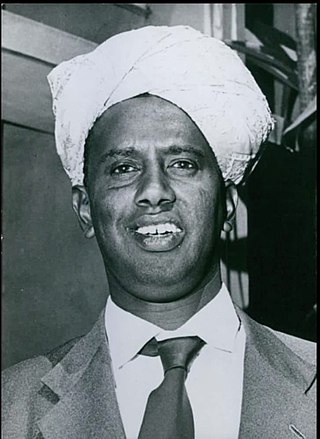
Ali Adan Lord (1915-1961) became the first Somali MP and later the Interior Minister of Kenya. As Interior Minister, Lord included, along with Jomo Kenyatta, the state delegation that went to Mogadishu during President Sharmaake’s term.
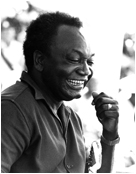
Ronald Gideon Ngala (1923–1972) was a Kenyan politician who was the leader of the Kenya African Democratic Union political party from its creation in 1960 until its dissolution in 1964.
Sir James Malcolm Monteith Erskine, sometimes referred to as J. M. M. Erskine, was a British politician. First elected at a Westminster St George's by-election in 1921 as an Anti-Waste League candidate, then returned a second time as an Independent Conservative, Erskine went on to be returned twice more as an unopposed official Conservative.

The presidency of Jomo Kenyatta began on 12 December 1964, when Jomo Kenyatta was named as the 1st president of Kenya, and ended on 22 August 1978 upon his death. Jomo Kenyatta, a KANU member, took office following the formation of the republic of Kenya after independence following his efforts during the fight for Independence. Four years later, in the 1969 elections, he was the sole candidate and was elected unopposed for a second term in office. In 1974, he was re-elected for a third term. Although the post of President of Kenya was due to be elected at the same time as the National Assembly, Jomo Kenyatta was the sole candidate and was automatically elected without a vote being held. He died on 22 August 1978 while still in office and was succeeded by Daniel arap Moi.
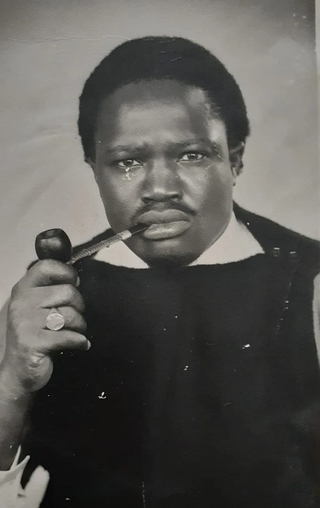
Ochola Ogaye Mak'Anyengo, also known as George Philip Ochola (1930–1990) was a Kenyan trade unionist and Member of Parliament for Ndhiwa, South Nyanza, Kenya. He was involved in the fight for Kenya's independence and was a beneficiary of the Mboya-Kennedy airlifts.
References
- ↑ "Our History – United Kenya Club".
- ↑ "Association to honour past heroes". Daily Nation.
- ↑ Jürg Wirz, Run to Win: The Training Secrets of the Kenyan Runners, Meyer & Meyer Verlag, 2006, p. 53
- ↑ Davies, Malcolm. "Mau Mau Activities and the Unrest in Kenya." The Antioch Review 13, no. 2 (1953): 221-33. doi:10.2307/4609634.
- ↑ Kenya National Assembly Official Record (Hansard), Jun 16 - Jul 15, 1970, p.1878
- ↑ Kenya National Assembly Official Record (Hansard), June 16 - July 15, 1970, p. 1879
- ↑ Paul Spicer, The Temptress: The scandalous life of Alice, Countess de Janzé, Simon and Schuster, 6 May 2010